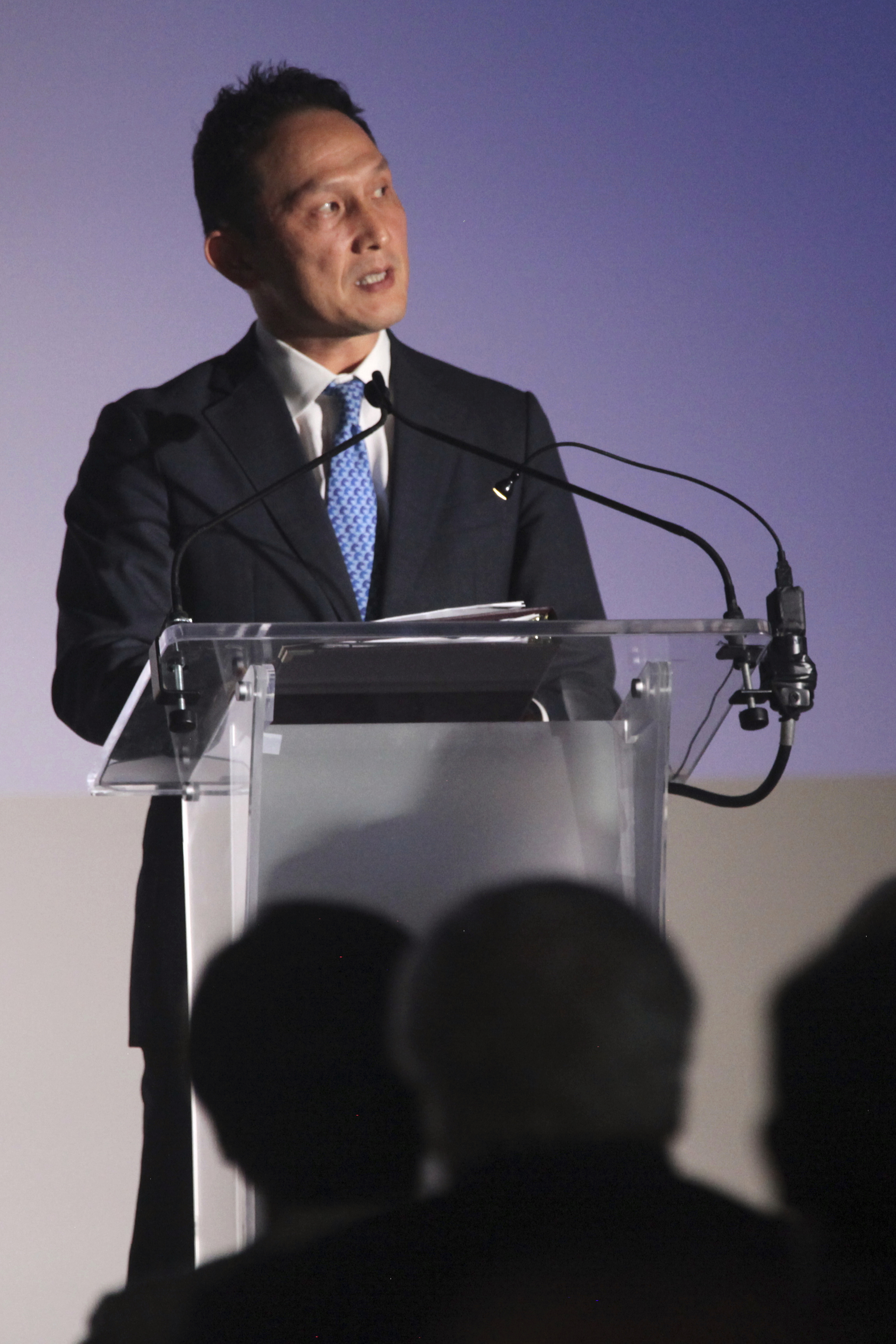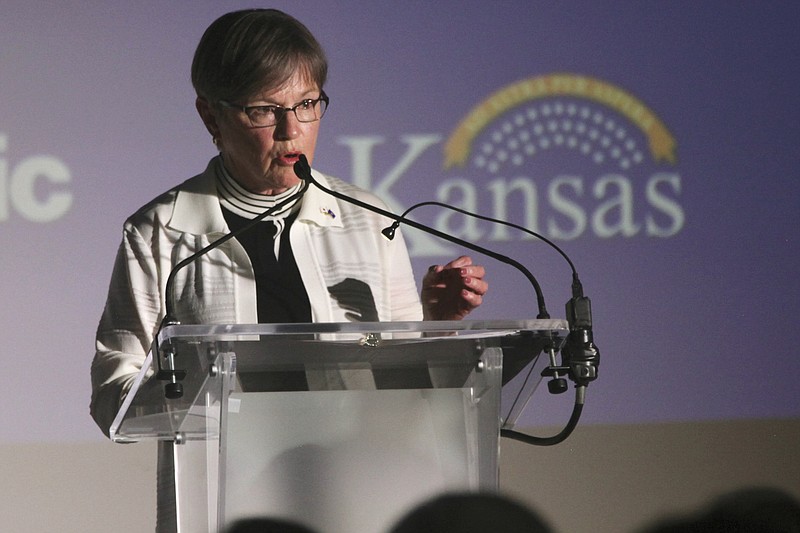TOPEKA, Kan. (AP) - Japan's Panasonic Corp. selected Kansas as the location for a multibillion-dollar mega-factory to produce electric vehicle batteries for Tesla and other carmakers, lured by the larges package of taxpayer-funded incentives that the state has offered a private business.
The company and Gov. Laura Kelly announced the new project last week, just hours after Kelly and eight top leaders of the Kansas Legislature signed off on a package of incentives worth $829 million over 10 years. The state had created a new program to offer incentives that could reach $1 billion or more only five months - because of Panasonic's project.
State officials expect the new plant to have about 4,000 workers, which would make Panasonic a "top 20, easily" private employer for the state in terms of its size, Kansas Commerce Secretary David Toland said. He and other officials believe suppliers and other local businesses will create up to 4,000 new jobs, and there will be 16,500 temporary construction jobs.
The company said it would invest about $4 billion in the plant in DeSoto, Kansas, a town with about 6,000 people and 30 miles (48 kilometers) southwest of Kansas City, Missouri. The town has been trying to redevelop a long-abandoned army ammunition plant.
But U.S. Jerry Moran, of Kansas, also suggested the project has national significance because it lessens U.S. dependence on China for manufactured products.
"It improves our job capabilities and increases our national security," Moran said during remarks to about 250 state officials and business leaders who gathered for Kelly's announcement and a reception afterward.
The White House characterized also the project's announcement as part of an effort to give the U.S. a more secure supply chain. Brian Deese, its National Economic Council director, added in a statement, "The future of transportation is electric."
Kansas' landing the project represented a big success for Kelly, a Democrat who faces a tough reelection race this year.
The announcement ended more than five months of secrecy in which Kansas officials were required to sign non-disclosure agreements to learn the details of Panasonic's plans. Legislators approved the new incentives program in February without state officials ever disclosing who would receive the benefits.
 Yasuaki Takamoto, Panasonic Energy executive vice president and head of its electronic vehicle battery business, discusses Panasonic's plans to build a multibillion-dollar manufacturing plant in Kansas, Wednesday, July 13, 2022, in Topeka, Kan. The company says the new plant will help support its efforts to advance the EV industry in the U.S. (AP Photo/John Hanna)
Yasuaki Takamoto, Panasonic Energy executive vice president and head of its electronic vehicle battery business, discusses Panasonic's plans to build a multibillion-dollar manufacturing plant in Kansas, Wednesday, July 13, 2022, in Topeka, Kan. The company says the new plant will help support its efforts to advance the EV industry in the U.S. (AP Photo/John Hanna)Kelly and the legislative leaders met Wednesday in secret for 45 minutes to review the details of the incentives package before approving it in a brief public session. They didn't name the company at or after that meeting.
Kansas was competing with Oklahoma. Tesla is building an electric-vehicle plant in Texas, and it and Panasonic jointly operate a battery plant in Nevada.
Oklahoma State Sen. Roger Thompson, who helped put together his state's $700 million package of incentives, said he learned Tuesday that Kansas had landed the project.
"They may build another facility in Oklahoma, so Oklahoma may still be in the running," he said.
Aides for a Panasonic executive vice president at Wednesday's announcement declined to let him answer questions from reporters, including one about whether Oklahoma still might land a plant.
After the announcement, Kelly defended the secrecy surrounding the project for months.
"We approached this project in a very professional way, very collaborative way, and we did what we needed to do to ensure the confidentiality of the company," Kelly told reporters. "That's the way business works."
Kansas officials said Panasonic's new plant would pay an average of $50,000, which would far exceed Kansas' median income for individuals of less than $32,000.
Meanwhile, the same law setting up the new Kansas incentives program also requires the state to cut its corporate tax rates by half a percentage point for every big deal closed, so that all businesses benefit. If two deals close, companies would save roughly $100 million a year and the state's top rate would drop to 6% from 7%.
Backers of the new program argued that Kansas has lost out on other large projects because it couldn't offer generous enough incentives.
Ohio early this year offered Intel Corp. incentives worth roughly $2 billion to secure a new $20 billion chipmaking factory. Michigan lawmakers in December approved $1 billion in incentives, two-thirds of it for General Motors for plants to assemble batteries for electric vehicles.
But Wisconsin scaled back incentives for electronics giant Foxconn. It was supposed to invest $10 billion there and create 13,000 jobs but the deal now is for about 1,450 jobs with an investment of $672 million by 2026.
___
Murphy reported from Oklahoma City, Oklahoma.
